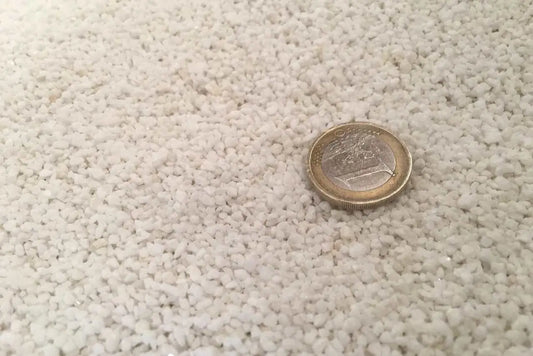Calcium carbonate is a common way of providing calcium to chickens and is especially important for adult laying hens, as they need large amounts of calcium to produce eggs with strong shells. Here are some examples of how chickens are given calcium carbonate based on their age, function, and type:
-
Adult laying hens: Calcium carbonate is usually mixed into the feed of laying hens in appropriate proportions to ensure they are getting enough calcium. It is normally added to the feed in a proportion of 3 to 5% to meet its nutritional needs.
-
Growing chickens: Young growing chickens need calcium to build strong bones, and calcium carbonate is provided in their feed at lower rates than adult chickens. The amount of calcium carbonate in the diet of growing hens can vary from 0.5 to 1.5%.
-
Broilers: Broilers do not need as much calcium as laying hens, since they do not produce eggs. However, they still need an adequate amount of calcium in their diet to maintain their health and well-being. The amount of calcium carbonate in the diet of broilers can vary from 0.5 to 1.5%.
In general, calcium carbonate is given to chickens in the form of a fine powder and mixed into their balanced feed, but it is also given in granulated, fine gravel form, this is because the chickens need to grind their feed that they ingest in their gizzard for proper digestion. The use of calcium carbonate stones helps hens to grind and crush feed in their gizzard, which improves their digestion and nutrient absorption.
Calcium carbonate granules or in gravel format as chicken feed
The granulometry or size of the recommended calcium carbonate stones may vary according to the age and size of the hens. Here are some examples:
-
Adult laying hens: The use of calcium carbonate stones with a size of approximately 1 to 4 mm is recommended. This is large enough to be captured in the gizzard of adult hens to aid in the grinding of feed.
-
Growing chickens: Calcium carbonate stones for growing young chickens should be smaller than those used for adult chickens, about 1-2.5mm in size.
It is important to note that calcium carbonate stones should not completely replace fine powdered calcium carbonate in chicken feed, as they do not contain the necessary amount of calcium relative to their size. Calcium carbonate stones should be used in conjunction with a balanced feed that contains the appropriate amount of powdered calcium carbonate to meet the nutritional needs of the hens.
In summary, the use of calcium carbonate stones in the feed of adult hens is recommended to aid in the grinding of food in the gizzard, and the suitable size of the stones should be about 1 to 4 mm. For growing young hens, the use of smaller stones with a size of approximately 1 to 2.5 mm is recommended.


